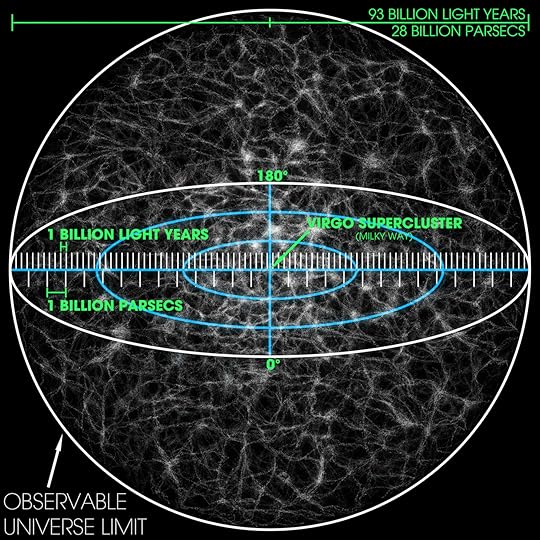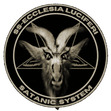What is God?

Christian God
For some readers, especially those with a strongly atheistic worldview, the very use of the term “God” may seem like an obstacle to reading the article, let alone accepting its conclusions. However, Ecclesia Luciferi is not an atheistic system, it is an anti-theistic system, which is why the concept of god is of fundamental importance to the godless theology of Ecclesia Luciferi.
Ecclesia Luciferi is a reader-supported publication. To receive new posts and support my work, consider becoming a free or paid subscriber.
This article is about god and religion and how they have been phenomena associated with humans since they began to explore nature and ask themselves metaphysical questions.
Among the various descriptions of what religion is, the introspective-reductionist approach of psychology to this issue argues that religion is a projection of human psychological needs. This means that in situations where we are unable to satisfy our needs in the real world, or cope with the difficulties of life, or with fear or regret, we create an alternative, ideal world in our imagination, which begins to influence our perception of the real world and the situations we experience.
Probably the most important psychological reason for the existence of religion is the fear of death. That is why people believe in an immortal soul that survives the death of the body and will live forever. This is a belief shared by most people, so it must be based on some adaptive evolutionary processes that caused people to believe in the immortality of the so-called soul. This has even led to opinions that perhaps this belief should not be taken away from people.
When Paul Bloom was once asked, “What is your dangerous idea?”, he replied: “The dangerous idea is that . . . if what you mean by ‘soul’ is something immaterial and immortal, something that exists independently of the brain, then souls do not exist. . . . The widespread rejection of the soul would . . . require people to rethink what happens when they die, and give up the idea (held by about 90% of Americans) that their souls will survive the death of their bodies and ascend to heaven. It is hard to get more dangerous than that.”
In theistic religions, a personal god or gods are the most important element of their followers' beliefs.
Why is it that in these religions, but also in the minds of most people, the term “god” is associated with a person?
The answer to this question was proposed by Sigmund Freud, who considered God to be a projection of the image of the father.

Christian God the Father
Stanisław Tokarski, in his article “The Formation of the Image of God and Its Influence on Interpersonal Relationships,” writes on this subject:
"For a child, parents are the fundamental reality. In traditional families, the father in particular embodies a higher order of life (behavioral norms come from him).
In the child's perception, he is the wisest, strongest, omniscient, possessing extraordinary abilities and powers. He decides on the most important matters and on the child's fate. He thus grows into an extraordinary figure who knows everything and can do anything. This image of the father forms the basic framework for the later concept of God. As the child develops an increasingly full relationship with his father, he goes through a period of idolizing him, perceiving him as if he were a god - he identifies the concept of father with the concept of God (Nelson, Jones, 1957; Strunk, 1959; Vergote, 1966).
Psychological studies have consistently shown that an important factor in the formation of the idea of God is the image of the child's parents. The child transfers the observed characteristics of the parents to God (as noted by Z. Freud and K. G. Jung). Psychological research and observations show that the beginnings of the idea of God can be observed in children as young as 2-3 years old. This is thanks to religious symbolism (which the child does not initially understand) depicting God as a human-like person (anthropomorphism). As the child develops, the image of God gradually loses these characteristics. Research by religious psychologists is interested in understanding how this image is formed in children. Two fundamental processes can be distinguished as the basic processes involved in its formation: the formation of the image of God according to the model of the parents and according to the image they have, which they pass on to the child (what they themselves think about God). The most important mediating processes involved in this formation are considered to be: imitation, identification, generalization, and projection.

The Hindu god Shiva
I think that these studies answer the question of why people imagine God to be a person and why they worship a personal God. I also believe that these psychological conditioning factors, deeply rooted in humans from childhood, make it so difficult to accept the view that God does not have to be a person.

The Greek god Zeus
Mainly in the book Biblia Pan-Satanica, but also partly in the rest of this article, I argue that from a purely logical point of view, the objective characteristics that testify to the divinity of something, traditionally attributed to a theistic god, can be attributed to a being that is not a person at all.
The Satanic God of Ecclesia Luciferi, who is in fact an anti-god to the theistic god of the Abrahamic religions in the worldview of Ecclesia Luciferi, can respond to the psychological needs of the human animal related to religion or spirituality in those who have such needs.
Ecclesia Luciferi uses the religious term god as a metaphor for godless nature, its omnipotence.
Therefore, I can say that I perceive nature as a being possessing all divine attributes. Nature understood as an all-encompassing, eternal, and indestructible being, as the totality of all that exists.

Observable Universe By Andrew Z. Colvin - Own work, CC BY-SA 3.0
This being is the creator and giver of life. It is the creator of the indisputable laws that govern everything and possesses powers beyond our understanding. Nature is reality. It exists and is completely godless.
It does not depend on a transcendent, personal, invisible agent of its existence who resides in the supernatural world. Everything that is supernatural does not exist in reality. It exists only in the fantasies created in the minds of beings created by nature. The omnipotent and omnipresent Being is a specific divine and satanic phenomenon that is the opposite of a theistic supernatural god.
It is, in essence, an anti-god, which is immanent, impersonal, completely devoid of anthropomorphic features and human morality and emotions, and is completely indifferent. It is a godless power that surpasses human ideas about gods, including human belief in their own divinity, with its power and magnitude.
Although it has given us life, it has no meaning for it. If humanity becomes extinct, if even the entire planet is destroyed, it will not matter to the cosmos. Man is completely insignificant in the face of the immensity of this being, and yet he is its child and part of it, he is matter created in the stars, which has gained consciousness, thanks to which he has obtained divine sonship, the blessings of which he can fully enjoy by perceiving this being in a pan-Satanic way.

Extended universe logarithmic illustration By Pablo Carlos Budassi - Own work, CC BY-SA 4.0
Although objectively divine, the Universe does not command, under penalty of death, that there be no other gods besides it, nor does it command or require that it be worshipped. Any conscious being who recognizes its divine qualities and its true significance for all living beings may, at its own discretion, consider nature to be divine and worship it.
Man cannot consciously call himself a god in the face of the unimaginable power and mystery of the universe that created him. However, man can achieve something akin to divinity if, through the power of his own mind and science, he one day achieves immortality.
Man has the right to maintain an atheistic attitude towards all things, but he can also adopt a pan-Satanic worldview, which has the power to change human consciousness.
In addition to its anti-theistic characteristics mentioned above, nature also possesses all the satanic characteristics implied by Christian theology, which is why Christians are forbidden to show positive emotions towards the world, which they consider to be subject to the power of Satan.
Love not the world, neither the things that are in the world. If any man love the world, the love of the Father is not in him. For all that is in the world, the lust of the flesh, and the lust of the eyes, and the pride of life, is not of the Father, but is of the world. 1 John 2:5-16
Hereafter I will not talk much with you: for the prince of this world cometh, and hath nothing in me. John 14:30
The devoid-of-spirits spirituality of the godless nature of the Ecclesia Luciferi system takes its name from its prince, Luciferian spirituality. Pan-Satanism, if one were to try to give it a name appropriate to religious systems, could be called naturalistic Luciferian spirituality.
Perceiving the universe as a satanic god, of which he himself is a part of divinity, rather than just a brutal fact, the Satanist changes his attitude towards godless reality. A positive change takes place in his consciousness, which until now had been focused on himself as a separate, autonomous being who attributes divine qualities to himself while grappling with metaphysical questions. The false dualism separating the illusion of the self as something separate (transcendent, which is a property of theistic supernatural beings) from the rest of the natural world is removed. This dualism is similar to that presented by followers of theistic religions who believe that they have a soul and a body, which causes suffering because, as they believe, the soul is trapped in the cage of an imperfect body and happiness will only be possible after the death of the body, when the soul is finally freed and attains salvation. Therefore, they are not happy now, nor can they experience happiness, which will only come after their death (compare with Romans chapter 7).

A vertical logarithmic scale of the universe_Pablo_Carlos_Budassi. CC BY-SA 4.0
A person who was cared for by their parents while growing up will respect them and always be grateful to them for the gift of life. However, his parents also received life from someone else, and the creator of life itself is godless nature. So, although unconscious in our understanding, is it not worthy of worship for this reason alone?
Godless nature unintentionally gave us the gift of conscious life. It is the greatest gift one can give to someone. It is a priceless gift.
Consciousness, almost miraculous, because it is a natural property of human life, which makes us feel the continuity of existence, without beginning and without end, because we do not feel the passage of billions of years that passed before our consciousness appeared, just as we do not feel the passage of time during sleep, when consciousness is turned off, and we will not feel the infinite eons of eternity after death. Consciousness gives us the impression that we are constantly present, here and now, as if for eternity.
“The eternal present of my ‘pure’ experience, when I attend to it, is more alive to me than some later eternity.” philosopher Michel Ferrari
A proper understanding of what the gift of conscious life received from satanic nature is causes a change in consciousness, a state that theists describe as salvation, and which psychologist Abraham Maslow describes as a peak experience, which is a mystical experience (These experiences are accompanied by feelings of delight, elation, enlightenment, and even ecstasy. They take place outside of time and space, they are unmotivated, absolute, even ruthless. During such an experience, the individual experiences a state of complete but temporary freedom from fears, anxieties, behavioral control, and defense. The person experiencing such sensations forgets about the surrounding world and loses the sense of the passage of time, reveals feelings of amazement, surprise, and humility, manifests feelings of reverence, elation... During a mystical experience, a person has a deep sense of contact with the world, of unity and at the same time independence, often full of understanding of the nature of the world and of oneself.)
This salvation is realistically available, here and now, not only after death.
“If there is a sin against life, it consists perhaps not so much in despairing of life as in hoping for another life and in eluding the implacable grandeur of this life.” Albert Camus
Pan-Satanism is not a revealed religion, it does not contain inviolable dogmas of faith, it is not the ultimate truth. Pan-Satanism can be a reality for those who accept it on the basis of objective arguments in favor of its theses, which it contains within itself.
Just as no one has to call nature a god despite all the arguments that allow it to be perceived as divine.
Starting from objective arguments, Pan-Satanism can become a subjective truth for anyone who wants to follow its logic. And it is a worldview that, if accepted, acts as an active force changing consciousness. Because Satanism should have a real power within it that, on every level, both intellectual and emotional, will resist and surpass what theistic religions, based on purely abstract speculations or delusions, have to offer.
However, Satanism, which proclaims the truth about the godless nature of things, will probably always remain too dangerous an idea for most people.

Ecclesia Luciferi is a reader-supported publication. To receive new posts and support my work, consider becoming a free or paid subscriber.
Ecclesia Luciferi Blog
- LCFNS's profile
- 3 followers



